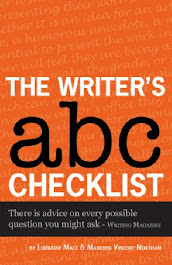Prolific author and good friend, David Robinson, has taken time out from his busy schedule to provide Writers’ Checklist with an astute guest post. Here he shares his views on the consequences of being a little too precious with our prose.
Here’s one of my favourite old jokes. I received two emails. One from my publisher, the other from my wife.
Publisher: I need changes to page 210.
Wife: I’m leaving you for the bloke across the street. We’re going to live in Rotherham.
Here are my responses:
Publisher: That page is the crux of the tale. I’ll not change a single word. If you don’t like it, I’ll pull it and you can stick your advance where the sun doesn’t shine.
Wife: Rotherham?
That bit of nonsense hides a conundrum for the writer (as well as marriage guidance counsellors). When you’re asked to change something, do you or don’t you?
For my sins, along with Maureen and another friend, Laurie Clayton, I co-edit a magazine on a writer’s community, and we recently got into a bit of a spat with a writer who objected to changes we requested. I’m not going to go into great detail here. It was all a storm in a teacup and eventually it blew over. No one is suggesting the author was wrong, but is there anything we can learn from it?
Some authors are fearfully protective of their work, others, and amongst this number I include myself, are happy to go along with editorial suggestions, as long as they make sense. Copyright, as we all know, is vested in the writer. Any piece, even a 100-word filler, is the intellectual property of the author, and it cannot be reworded or changed without permission. If changes are suggested and the writer says, “No” then that is the end of the matter.
But hold on.
As a writer, how badly do you want to see your work in print? If you’re asked for changes and you refuse, you leave the editor with only one option. Rejection. If you don’t see the need for the change, you can, of course, negotiate, but if the editor sticks to his/her guns, then you will be rejected.
You have to ask yourself, why were you asked to change it? Does the change make more sense than your original? Does the change affect the underlying message? Does it make you appear more or less erudite, and if so, is that a reflection of the magazine’s/book’s potential audience.
The underlying theme here is, if you want to see your work in print, then don’t be too protective of it. Be prepared to give a little ground. Be ready to accept changes. By all means challenge them if you feel they’re unjustified, but even so, prepare to back down if you have to.
As an example, about 4 years ago, I published a paperback novel through a US imprint. We all know there are major differences between English in the USA and English in Great Britain, and it’s not just about spelling. Amongst the numerous changes the editor asked for was the phrase, “ticked off”. If you are ticked off in Great Britain, it means you’ve been scolded. If you are “ticked off” in the USA, it means you are mildly annoyed.
The character at the core of this passage was an English aristocrat, and “ticked off” would accurately describe matters from her point of view. Did I change it? You bet I did. Publishing that novel was more important to me than those two words.
Not all changes are so simple or clear cut, but ultimately, it’s up to you, the author, to decide how much you want to protect your prose.
And what about editors? My advice is simple. If you have a piece which is borderline and you really want it, ensure that the changes you want are valid and you can justify them. Don’t make changes for the sake of change or for the sake of wielding power.
The latest book in his popular whodunit series starring the members of the Sanford 3rd Age Club is A Murder for Christmas
.








No comments:
Post a Comment